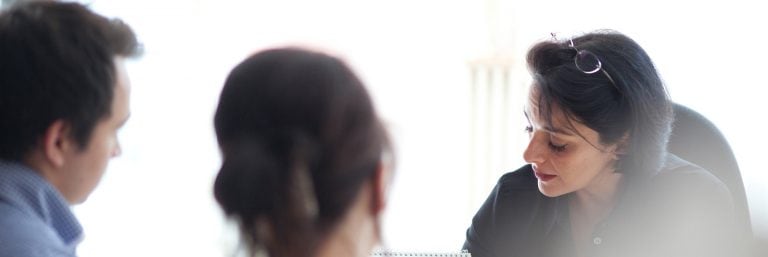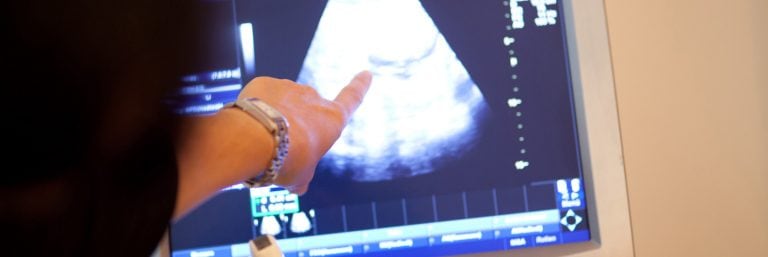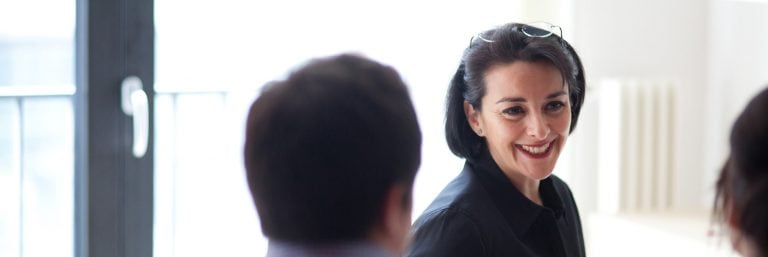Therapy of endometriosis
Endometriosis is treated in our clinic according to a consistent but individually adapted treatment concept. The combination of different surgical techniques with modern hormone preparations or medications as well as complementary therapy approaches are components of the treatment strategy.
Our fertility patients suffering from endometriosis are not treated according to a rigidly defined fertility therapy scheme, but first receive a stage-specific consultation and can then discuss the therapy regime with the treating doctor.
Our goal is to eliminate or reduce the symptoms and minimise new endometriosis relapses with all their problems, thus increasing the quality of life. Another goal is to strengthen the immune system and provide psychological support for our patients.
Therapy procedure
At the beginning of the medical consultation we will discuss the goal of the treatment: What is important to you?
- Do you wish to have children? Or
- should the focus lie on the treatment of the endometriosis?
During the discussion we will work out an individual therapy management for you. We are a team of specialists who work “hand in hand”. Surgeons, endocrinology and fertility specialists, pain therapists, urologists, surgeons, radiologists – but also doctors for naturopathic therapies such as homeopathy, acupuncture, bio-resonance therapy and psychologists.
Treatment should be tailored to the individual woman, her medical history, her individual life situation and her needs, and should be part of a long-term, consistent treatment concept.
There is no causal (eliminating the cause) therapy for endometriosis, i.e. all therapeutic agents we can use are symptomatic: i.e. if the therapy is discontinued, the disease can come back quickly, depending on the stage.
Therapy usually begins with a “keyhole operation”. Here the surgeon gets a picture of the degree of the disease, takes samples for a fine tissue examination and strives for “rehabilitation”, i.e. in the ideal case, the complete removal of the endometriosis. Dr. Halis operates on her patients at the Humboldt Clinic under Prof. Dr. A. Ebert; here, in the case of advanced endometriosis, it is always possible to consult a surgeon or urologist, so that the operations do not have to be completed incompletely.
Now it is relevant whether you wish to have children? If so, the fertility therapy should be carried out directly afterwards.
If your family planning is complete, we will work out a therapy together from among several options. Possibilities are:
Hormone therapies
Since endometriosis tissue is oestrogen-dependent in most cases, many therapies aim to reduce the amounts of oestrogen in the body. This should lead to a containment of the diseased tissue – ideally to an “atrophy” (a “withering away”). The types of hormone therapies are varied and will be explained to you during the consultation (progestogens alone, combined preparations such as the pill, the hormone coil).
Pain therapy
Pain medication has no influence on the course of the actual disease. One therefore speaks of a “symptomatic therapy”. Pain should definitely be treated adequately and under no circumstances should it be “heroically” endured “until it really doesn’t work any more”. The earlier an effective pain therapy is started, the sooner the dose of painkillers can probably be reduced again. The goal must be to avoid the development of a pain memory
Complementary treatment options
Acupuncture, homeopathy, traditional Chinese medicine (TCM), naturopathic therapeutics, bio-resonance therapy, but also yoga, tai chi, progressive muscle relaxation are among them. These therapies do not heal endometriosis. But they do improve well-being and strengthen the immune system. Relaxation methods can relieve painful tension. Unfortunately, none of these approaches is able to cure endometriosis.
Endometriosis must be diagnosed early and treated consistently
We are involved in training projects for endometriosis patients (for example, in cooperation with the Hanover Medical School, Dr. Iris Brandes) and in educational projects for adolescents (teenagers and young women). Young girls in particular need trustworthy contacts; they must not be led to believe that pain during menstruation is normal, even if they take painkillers to be able to go to school.
We design and participate in long-term studies and research projects in order to develop more gentle diagnostic procedures and therapies!
How we can help you …
Endometriosis is a chronic disease and our goal is to improve the quality of life of our patients, or to realise their wish to have a child, if this is now in the foreground. The treatment worked out for each patient must be tailored to her medical history and her needs and will be part of a long-term, individual treatment concept, which always includes psychological support.
We conduct studies and participate in studies of other centres, so that our patients have the opportunity to benefit from new drugs or forms of therapy at an early stage. We will advise you on all modern diagnostic and therapeutic methods.
To increase the quality of treatment, our team strives for interdisciplinary cooperation with endocrinologically and surgically trained specialists in gynaecology, surgery, urology, psychosomatics, pain therapy, X-ray diagnostics and physiotherapy, who will provide you with competent, individual and personal care.
… and how you can help yourself
For the women affected, up to 10 years often pass between the first symptoms and the diagnosis, with pain, an unfulfilled desire to have children, the feeling of not being understood and taken seriously. Many accept massive restrictions on their personal and professional development.
Talk to us. Let us advise you:
Period pain is not normal
and
Endometriosis-related problems can be treated.



